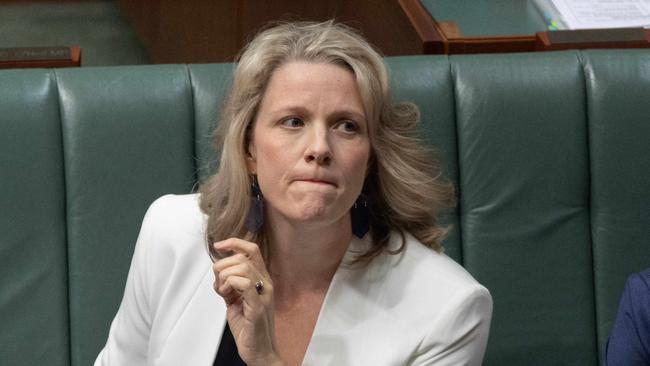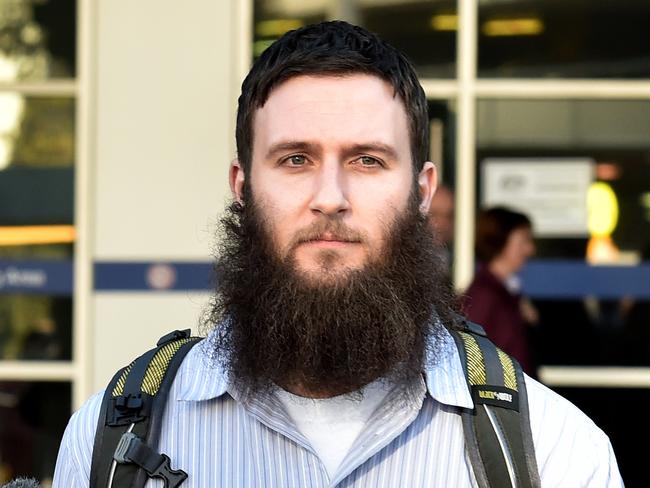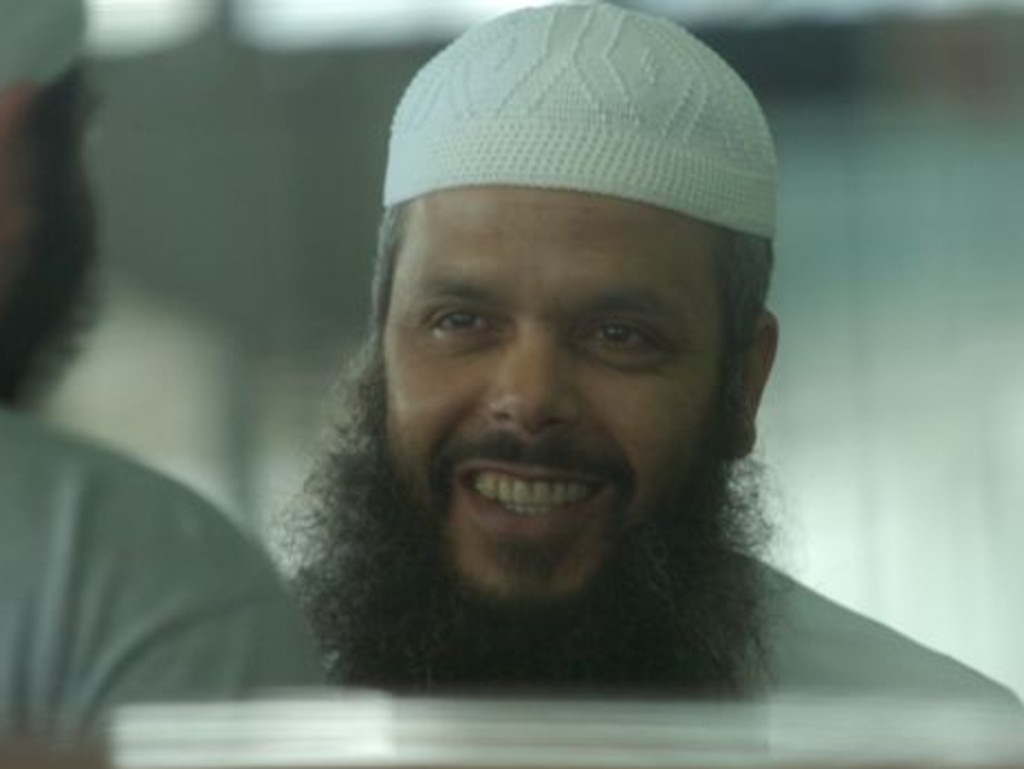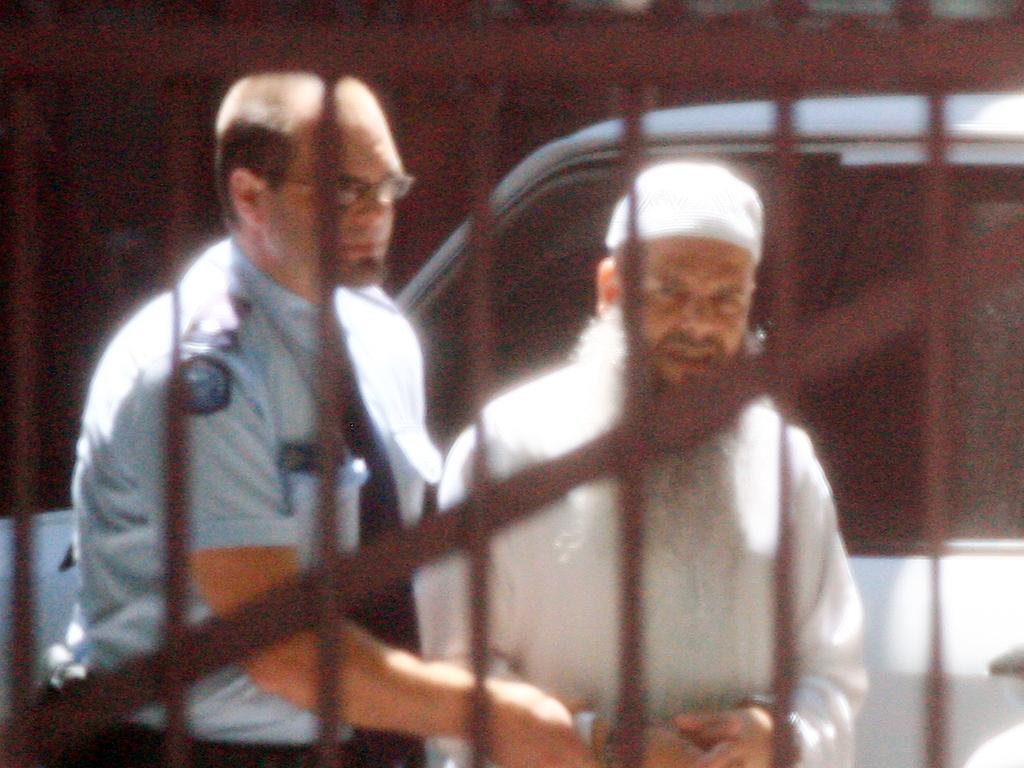Terrorist Abdul Nacer Benbrika close to being deported after government revokes his visa
Notorious terrorist Abdul Nacer Benbrika faces immigration detention and deportation after Home Affairs Minister Clare O’Neil revoked his visa.

The Albanese government has cancelled the visa of terrorist Abdul Nacer Benbrika, bringing the former al-Qa’ida terrorism cell leader closer to being deported from Australia at the end of his prison term.
Home Affairs Minister Clare O’Neil is believed in recent days to have revoked the visa, which had let the Algerian-born hate preacher remain in Australia after his citizenship was stripped in 2020.
The revocation of his non-citizen visa – which allows him to remain in Australia, but would bar him from re-entry if he was to leave – is the latest legal move as multiple governments have struggled for close to 20 years to work out how to deal with Benbrika.
His visa is thought to have been revoked under section 501, meaning he is deemed to have failed the character test to remain in Australia, a provision usually used for booting out foreign-born bikies and sex offenders.

Benbrika has served 18 years in jail after being convicted in 2005 of being the spiritual leader of terror cells that plotted to attack landmarks in Melbourne and Sydney. The 63-year-old served every day of his 15-year jail term, then a further three years under a continued detention order, a post-sentence detention regime which has come under fierce criticism from Independent National Security Legislation Monitor Grant Donaldson, who called for it to be abolished.
Benbrika is due for release in December this year, meaning he would be taken straight into immigration detention following the expiration of his continued detention order. Australia could then deport him to his birth country, provided the Algerian government agrees to accept him.
The Algerian embassy in Canberra did not respond to questions about Benbrika, and has never said whether it would take him back. His only chance of avoiding deportation, or potentially indefinite immigration detention if Algeria rejects him, lies in a High Court appeal he has launched against the decision by the previous government to strip his citizenship.
The matter goes to hearing in June, and the finding will set a precedent as he is the only terrorist stripped of citizenship after being convicted in an Australian court.
As Benbrika continues his legal fight to remain in Australia, a directions hearing is listed in the Victorian Supreme Court on Tuesday to progress his challenge to his continued detention order, including the decision by authorities to deem him a continued risk.
The decision was arrived at partly by using the now-questioned VERA-2R and Radar threat assessment tools. The directions hearing will also mention the application by authorities for Benbrika to be placed on an extended supervision order – a strict surveillance program – when he is released. The order would be a back-up plan if he wasn’t deported and won his citizenship case.

Ms O’Neil’s office would not confirm Benbrika’s visa had been revoked, but confirmed non-citizens were required to satisfy identity, health, security and character requirements to stay in Australia.
“The Australian government will continue to act decisively to protect the community from the risk of harm posed by individuals who choose to engage in criminal activity or behaviour of concern, including visa cancellation or refusal where appropriate,’’ a spokesperson for the minister said.
“When a visa is cancelled by the minister under section 501 of the act, the former visa holder is notified of the decision, and invited to make representations about revocation of the decision within seven days. A person is only entitled to make such representations if they are in immigration detention.
“Non-citizens in Australia, who do not hold a valid visa, will be liable for detention and removal from Australia as soon as reasonably practicable.’’
Attorney-General Mark Dreyfus has not said if he would accept the recommendations of Mr Donaldson and abolish continued detention orders, which have been used only on Benbrika and convicted terrorist Blake Pender.
“This is a report by an independent statutory office holder … which the government is carefully considering,’’ a spokesperson for Mr Dreyfus said. “The government will always put the safety and security of Australians first.’’
Meanwhile, the leader of the so-called “tinnie terrorists’’, Robert Musa Cerantonio, has been released from jail without being placed on any specific federal control order.

Cerantonio, a self-styled preacher and spiritual leader of a group of misguided would-be jihadis who drove a boat from Victoria to Queensland with the intention of sailing it to The Philippines to help overthrow The Philippines government and install sharia law there, was freed from prison in Victoria last week.







